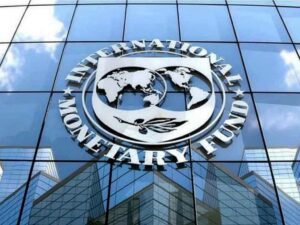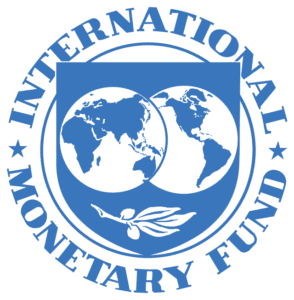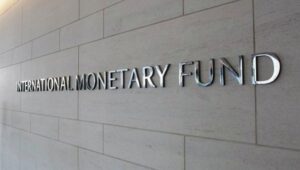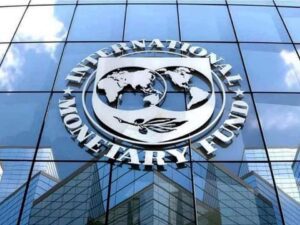
The IMF staff’s main scenario under the Monitoring Program with the Board of Directors (PMB) suggests that Ukraine will need to purchase 5 billion cubic meters of gas in 2023, spread evenly over 12 months.
According to the schedule presented in the documents, without imports, Ukraine will leave this heating season with reserves of 6 billion cubic meters and by the next heating season will only be able to increase them to 8.5 billion cubic meters, which will cause their fall to 6 billion cubic meters by the beginning of 2024.
At the same time, taking into account imports, gas reserves at the end of this heating season will be only slightly below 9 billion cubic meters, and by the next will increase to almost 14 billion cubic meters, which is only about 0.5 billion cubic meters less than at the beginning of this season.
“To help Naftogaz meet the associated increase in financing needs, the government is already providing budget support to the company through an implicit subsidy in the form of lost revenues from rent payments for gas, which is estimated at about UAH 145 billion ($3.5 billion) for 2023,” the materials on the Fund’s website to the PMB indicate.
At the same time, IMF experts suggest that more support is likely to be needed, including as compensation for utility service obligations due to the fixing of the retail gas price at 7.4 UAH per cubic meter – well below the import parity price.
They added that the Heating Utility Company (HUC) and Gas Transmission System Operator (GTSO), whose liquidity suffers due to lower transit fees and low capacity usage, may also need support.
“In general, according to staff estimates, up to UAH 150 billion ($3.6 billion) in the form of additional financial support to Naftogaz, UGTSU and TKE may be required in 2023,” the IMF experts said.

The Executive Board of the International Monetary Fund (IMF), following the discussion of Program Monitoring with Board involvement (PMB) for Ukraine, previously approved at the IMF management, declares that this four-month program is designed to help Ukraine maintain stability and catalyze donor financing amid very large balance of payment needs and exceptionally high risks.
“The PMB is tailored to Ukraine’s exceptional circumstances, to help the authorities implement prudent macroeconomic policies during this particularly difficult period and catalyze donor financing. Large and predictable external financial support will be critical for the success of the authorities’ strategy, and frontloaded disbursements would help address strains in early 2023,” IMF First Deputy Managing Director and Acting Chair Ms. Gita Gopinath said.
“Key measures under the PMB include enhancing revenue mobilization and reviving the domestic debt market, preparing a financial sector strategy, and enhancing transparency and governance,” the fund said.
“Notwithstanding all these strains, the authorities have largely managed to maintain macroeconomic and financial stability, and they are committed to continue adapting policies to fast changing circumstances, including in the case of a severe downside scenario. Balance of payment needs remain very large and risks are exceedingly high,” Gita Gopinath stated.
“The PMB focuses on a targeted set of policy actions to support macroeconomic and financial stability. This will require enhancing revenue mobilization, containing monetary financing and therefore reviving domestic debt markets. At the same time, the PMB seeks to promote transparency and preserve hard-won gains from past Fund-supported programs, including in the areas of independence of the National Bank of Ukraine and, more broadly, governance and anti-corruption. Strong implementation of the PMB should help pave the way toward a possible full-fledged IMF-supported program,” she said.

Canada has transferred 500 million Canadian dollars to the administered account of the International Monetary Fund for Ukraine, and the Netherlands – EUR200 million, IMF Managing Director Kristalina Georgieva said.
“Thank you, Canada, for a new contribution of CAD 500 million to the Administered Account for Ukraine. This is Canada’s third contribution to the account, which supports efforts to help stabilize the Ukrainian economy,” she said on Twitter.
“I am delighted to see another member of the international community joining the efforts to help stabilize the Ukrainian economy using the Administered Account for Ukraine. Thank you, the Netherlands, for your EUR 200 million contribution,” she said.
As reported, Canada is transferring to Ukraine as a loan through the IMF in the amount of CAD500 million received from the issuance of special five-year sovereign bonds in support of Ukraine.
In early July this year, the Netherlands announced its decision to allocate another EUR200 million to Ukraine through the IMF account.

The mission of the International Monetary Fund (IMF), whose positive conclusions will start work on a new program with it, is expected to begin work in Ukraine next week, said the head of the National Bank of Ukraine, Andriy Pyshny.
“We expect the start of the IMF mission as early as next week. We hope to reach agreements on macroeconomic indicators, parameters of the state budget for 2023 and sources of covering its deficit, which will be the beginning of work on a new program with the Fund,” the press service of the National Bank quoted him as saying. .
Pyshny also thanked the IMF for providing $1.3 billion in additional emergency financing under the RFI instrument, which arrived in Ukraine on Thursday.
As reported, on the eve of the IMF Managing Director Kristalina Georgieva said that the Fund’s team, together with the Ukrainian team, immediately after the annual meeting of the IMF and the World Bank (WB) this week, will determine Ukraine’s macroeconomic framework and budget.
In addition, US Treasury Secretary Janet Yellen noted that a new full-fledged IMF program for Ukraine could be early next year.
Finance Minister Serhiy Marchenko said the government estimates the need to finance the state budget deficit in 2023 at $3.5 billion a month, compared to $5 billion a month in 2022, which Ukraine has so far failed to raise. The best indicator was August with $4.6 billion, and in general, since the beginning of the war, or almost eight months, external funding amounted to $20.7 billion, of which almost 50% were grant funds.
The draft state budget of Ukraine for 2023, which was adopted in the first reading, provides for external financing of the deficit in the amount of $38 billion, or about $3.2 billion per month.

Ukraine has received $1.3 billion in additional emergency financing from the International Monetary Fund (IMF), Prime Minister Denys Shmyhal has said.
“$1.3 billion of additional emergency financing from the International Monetary Fund has arrived in Ukraine. The funds will be used to finance priority needs: strengthening defense capabilities, paying pensions, social programs and supporting the economy,” Shmyhal wrote on his Telegram channel on Thursday.
According to him, in general, since the beginning of the full-scale war, the IMF has provided Ukraine with $2.7 billion.
“Also, in the near future, we will start preparing a new special program with the Fund, which will start working next year. We thank our partners and allies for their unwavering support,” the prime minister said.

Difficult year awaits Ukraine in 2023: the public finance deficit is estimated at $3-4 billion, it is necessary to ensure the stability of the economy, and the IMF will provide support: an international forum will be convened in the near future to solve this problem, said the Managing Director of the International Monetary Fund Kristalina Georgieva.
“We need to learn how to ensure the sustainability of the economy. According to our preliminary estimates, three to four billion dollars are needed monthly,” she said at the second meeting of the “round table” of ministers to support Ukraine as part of the annual meeting of the IMF and the World Bank in Washington in Wednesday.
Responding to the call of the President of Ukraine Volodymyr Zelensky to organize an economic forum, which meets on a regular basis, and considers the macro-situation in the country, the lack of funding and solves the problem of its reduction, Georgieva said that such work is already underway.
“We will convene the forum as soon as possible,” the head of the IMF said.
She also noted that the Fund has a new platform for interaction, allowing for monitoring jointly with the board of directors, which is the way to a full-fledged program for Ukraine, which Zelensky called for.
“We are moving with you in the direction of a strong Ukraine,” Georgieva stressed.
US Treasury Secretary Janet Yellen noted that a new IMF program for Ukraine could be early next year.
Georgieva clarified that the Fund’s team, together with the Ukrainian team, immediately after the annual meeting of the IMF and the WB, will determine the macroeconomic framework and budget of Ukraine.
She expressed her hope that the war would end sooner rather than later. “But judging by what we see, we should be close to the Ukrainian people,” the head of the IMF said.
She recalled that Ukraine’s international partners have already mobilized $35 billion, a significant part of which has already been transferred, and called for further support, especially in the form of grants.
According to Georgieva, further needs will be determined, firstly, by the cost of social services, which depends on war and migration, and secondly, the cost of restoring vital infrastructure, which also depends on war and on prioritization.
“And thirdly, what are the energy needs of the country, how much needs to be imported to provide for people in Ukraine, and this depends, of course, on the horrors of war,” the managing director added.
She noted that the senseless war of Russia against Ukraine has sharply worsened the prospects for the global economy and brought the most dramatic consequences for the people of Ukraine.
As reported earlier, Finance Minister Sergei Marchenko said that the government estimates the need to finance the state budget deficit in 2023 at $3.5 billion per month.
The first meeting of such a “round table” was held at the spring meeting of the IMF and WB on April 21. It announced Ukraine’s monthly need of $5 billion to finance the state budget deficit in the context of the war unleashed by Russia.
The draft state budget of Ukraine for 2023, which was adopted in the first reading, provides for external financing of the deficit in the amount of $38 billion, or about $3.2 billion per month.